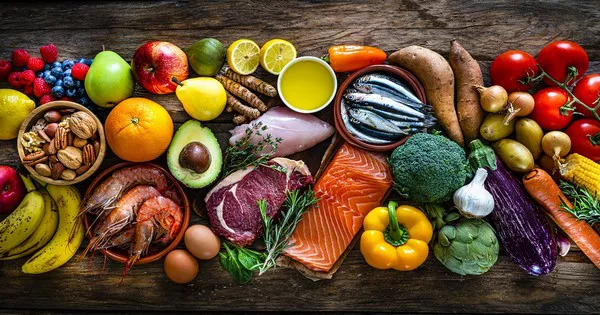Embarking on a journey to understand the repercussions of excess protein consumption is a crucial exploration into the delicate balance of nutritional choices. While protein is an indispensable component of a healthy diet, delving into the realm of excess raises questions about potential health risks. In this comprehensive guide, we navigate the landscape of protein intake, unraveling the effects and shedding light on the importance of moderation for optimal well-being.
1. Bad Breath
One of the less-discussed consequences of excess protein consumption is the potential for bad breath. This phenomenon, known as ketosis breath, occurs when the body, in the absence of sufficient carbohydrates, starts breaking down stored fat for energy. The byproducts of this process can lead to an unpleasant odor on the breath, emphasizing the need for balanced macronutrient intake.
2. Kidney Damage
While protein is essential for bodily functions, excessive protein intake can strain the kidneys. The kidneys play a crucial role in filtering waste products, including the byproducts of protein metabolism. Prolonged strain on the kidneys may contribute to kidney damage, particularly in individuals with pre-existing renal conditions. Striking a balance in protein consumption is crucial to support renal health.
3. Increased Cancer Risk
The relationship between excess protein consumption and an increased risk of certain cancers is a topic of ongoing research. Some studies suggest that a diet excessively high in red and processed meats, common sources of protein, may be associated with a higher risk of colorectal cancer. However, the evidence is complex, and more research is needed to establish definitive links.
4. Calcium Deficiency
Excessive protein intake may impact the body’s calcium balance, potentially leading to calcium deficiency. The process involves the increased excretion of calcium through urine, raising concerns about bone health. Maintaining a delicate equilibrium between protein and calcium intake is crucial for supporting overall bone strength and density.
5. Weight Gain
Contrary to the notion that excess protein aids in weight loss, an overabundance of calories, regardless of the source, can contribute to weight gain. Protein-rich foods, while valuable for satiety and muscle support, still contribute calories. Balancing protein intake with overall caloric needs is essential for those seeking to manage or lose weight effectively.
6. Diarrhea and Indigestion
Consuming too much protein, especially in the form of supplements or excessive meat intake, can lead to digestive issues such as diarrhea and indigestion. The body may struggle to process an excess of protein, resulting in gastrointestinal discomfort. Opting for a balanced diet with a variety of protein sources can mitigate these digestive concerns.
7. Excess Thirst and Fatigue
Dehydration can be a consequence of excess protein consumption. The process of breaking down protein requires additional water, potentially leading to increased thirst. Failure to meet this heightened need for hydration can result in fatigue and lethargy, emphasizing the importance of maintaining adequate fluid intake.
8. Nausea and Constipation
An imbalance in protein intake, especially when coupled with insufficient fiber, can contribute to nausea and constipation. A well-rounded diet that includes fiber-rich foods alongside protein sources is essential for supporting digestive health and preventing these uncomfortable symptoms.
9. Heart Disease
The relationship between protein consumption and heart disease is intricate and multifaceted. While some sources of protein, such as fatty meats, may be associated with an increased risk of heart disease, others, like lean poultry and plant-based proteins, may offer cardiovascular benefits. Understanding these complexities underscores the importance of mindful protein choices.
10. Kidney Stones
Excessive protein intake, particularly from animal sources, may contribute to the formation of kidney stones. The process involves an increased excretion of calcium and oxalate, two substances implicated in stone formation. Striking a balance in protein intake, coupled with ample hydration, is key to mitigating the risk of kidney stones.
11. Osteoporosis
The potential impact of excess protein on bone health extends to concerns about osteoporosis. Calcium loss resulting from increased urinary excretion may compromise bone density over time. Maintaining a well-balanced diet that includes adequate calcium and other bone-supporting nutrients is essential for skeletal health.
Conclusion
While protein is a vital component of a healthy diet, moderation is key to avoiding potential health risks associated with excess consumption. By embracing a diverse and balanced approach to nutrition, individuals can optimize their well-being, ensuring that protein intake aligns harmoniously with overall dietary needs and health goals. As we navigate the complex interplay of macronutrients, the mantra remains clear: balance, variety, and moderation pave the way to sustained health and vitality.
[inline_related_posts title=”You Might Be Interested In” title_align=”left” style=”list” number=”6″ align=”none” ids=”3568,3565,3469″ by=”categories” orderby=”rand” order=”DESC” hide_thumb=”no” thumb_right=”no” views=”no” date=”yes” grid_columns=”2″ post_type=”” tax=””]
































